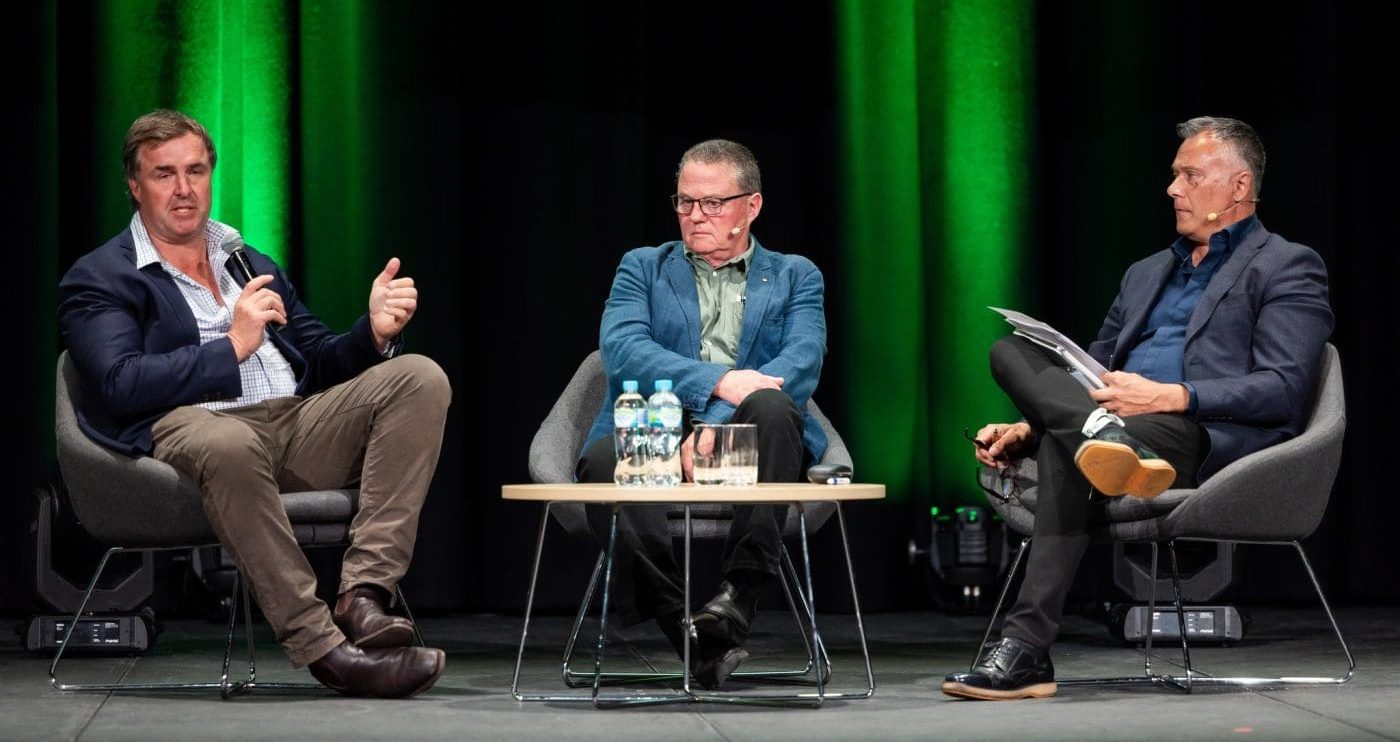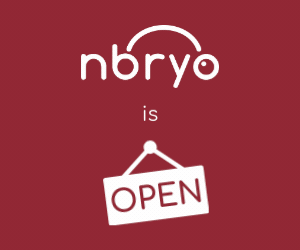
Tom Bull talking on a panel session with Jigsaw Farms owner Mark Wootton and television personality Stan Grant. Photo: LambEx
WHILE Jigsaw Farms’ drop out of carbon neutral status has been well documented this year, the benefit of the work done to reach carbon neutral in the first place has been a little less of a focus.
The Victorian sheep, cattle and forestry operation was one of the first in the country to claim carbon neutrality after extensive studies done by the University of Melbourne in 2011.
Results from an updated study were released earlier this year and showed that while the operation was almost carbon neutral, it could no longer make the claim.
Jigsaw Farms’ owner Mark Wootton was part of a panel discussion at the recent LambEx conference in Adelaide, where he said the large-scale tree plantings that were offsetting the operation’s methane emissions have had many more benefits than carbon.
“We accidently reached carbon neutral because the trees were planted for shelter and biodiversity gains,” Mr Wootton said.
“We have gone from 46 bird species to 174 bird species on farm now. We have taken out all the erosion and salt areas.”
Mr Wootton said shelter was one of the biggest advantages of the tree plantings and had the potential to play a major role in reducing methane emissions through efficiencies.
“It is pretty simple carbon, if you have more lambs or calves you have per maternal unit and get them to market quicker than your footprint goes down,” he said.
“Carbon efficiency goes hand-in-hand with economic efficiency, if you have high stocking rates with lambs being turned off quickly and high survival rates then you are ticking both boxes.”
How did Jigsaw Farms lose carbon neutral status?
Jigsaw Farms’ carbon neutral status relied heavily on carbon sequestration from tree plantings the company has been doing since 1996.
 As the growth of those trees has started to plateau, the rate of carbon sequestration has had the same trajectory – meaning the company could no longer offset all its methane emissions internally.
As the growth of those trees has started to plateau, the rate of carbon sequestration has had the same trajectory – meaning the company could no longer offset all its methane emissions internally.
Mr Wootton and Professor Richard Eckard, who has been leading the University of Melbourne team working on Jigsaw Farms, have both been vocal critics of the soil carbon industry – arguing that soil carbon sequestration is not permanent and can be lost.
Soil carbon was left out of the carbon neutral measurement and Mr Wootton said he believed the farm had reached saturation point with its soil carbon measurement – averaging 3-4pc.
Mr Wootton said the company rotated through paddocks to do soil carbon tests each year, with paddocks being tested about once every four years.
The soil carbon tests are part of the routine soil tests, which go down between 10cm and 30cm.
Most of the registered soil carbon projects are testing down to 1m, which Mr Wootton said the company had done sporadically.
Market access the main motivation
Market access and having a diversity of options has always been one of the main motivations for Jigsaw Farms. It sells cattle to Coles’ Finest program and wool to ZQ, which both market products with environmental claims.
Mr Wooton said no longer being able to claim carbon neutral status was a chance for the business to reset its priorities and keep working towards maintaining that market access.
“If you focus on carbon efficiency you have less waste in your system. Those lambs which are in the feedlot that are not performing, we can either get them out of the system or look at our genetics and make sure we breed less of them,” he said.
“You focus on looking at those genetics that are really good for feed conversion.”
Mr Wootton said while the company was trying to find these efficiencies, it was also looking at the emerging technologies.
“What we are doing now is looking at the more technical things to reduce emissions, which is things like genetics and feed additives,” he said.
“We have looked at all of them and they are too expensive for what the market is dictating, which might change overtime.”
